Giving up bread doesn’t have to mean giving up comfort, especially when the right recipe can satisfy cravings without spiking your blood sugar.
Giving up bread is often one of the hardest parts of managing diabetes. Most store-bought “diabetic-friendly” breads are either dry, tasteless, or still packed with carbs that send blood sugar soaring. It’s frustrating and discouraging, especially when you’re trying to eat right but still want something satisfying.
In this guide, I’ll share the best diabetic bread recipes that actually taste good and work with your blood sugar, not against it. These are easy to follow, backed by nutrition science, and approved by real dietitians.
Inside, you’ll find recipes for low-carb bread, hearty whole wheat options, and creative choices like zucchini bread. Each one is designed to help you enjoy real bread without guilt or glucose spikes.
Table of Contents
Why Traditional Bread Is a Challenge for Diabetics
- Most traditional breads, including white and many whole wheat varieties, are made from refined flours. These flours break down quickly into sugar once digested. This causes a sharp rise in blood glucose levels, making them a poor choice for people with diabetes.
- To understand the impact, consider this: eating just two slices of whole-wheat bread can raise blood sugar more than six teaspoons of table sugar. That’s because bread ranks high on the glycemic index, which measures how fast a food spikes your blood sugar.
- The faster your blood sugar rises, the harder your body has to work to bring it down. Over time, this can lead to insulin resistance and other serious health issues. That’s why smart bread choices are essential for maintaining stable blood sugar.
“Choosing breads with a low glycemic index and pairing them with foods rich in fat, protein or fiber can help minimize blood sugar spikes and support better glucose management,” says registered dietitian Erin Palinski-Wade
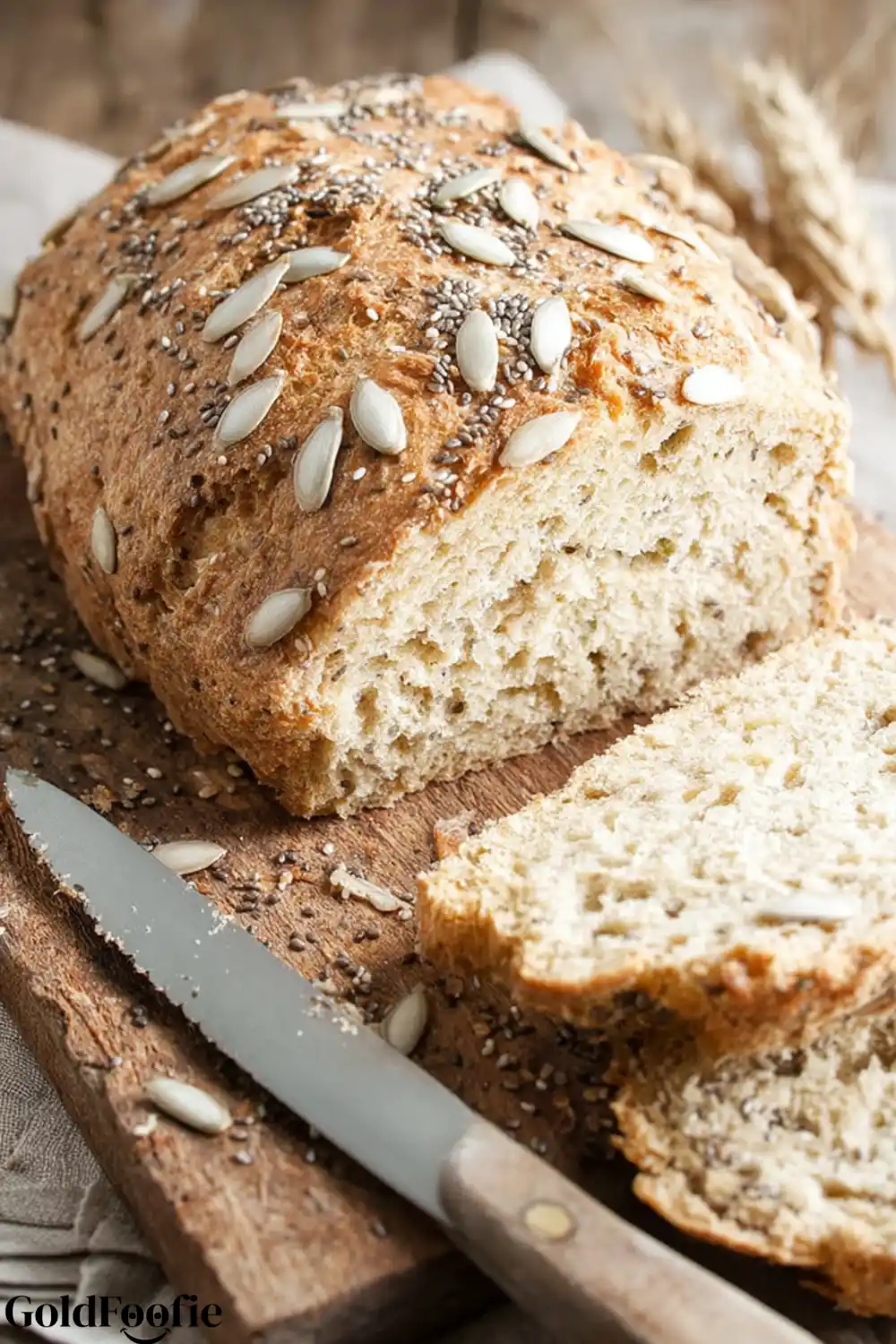
Choosing the Best Flours for Diabetic-Friendly Baking
The key to diabetic-friendly bread starts with using the right flours. Traditional wheat flour contains high levels of carbohydrates that quickly turn into sugar. For better blood sugar control, we use low-carb, high-fiber alternatives.
These flours are packed with nutrients, digest more slowly, and help reduce blood sugar spikes. Choosing the right one can make your bread both healthy and enjoyable.
A Comparison of Top Diabetic-Friendly Flours
| Flour Type | Net Carbs per Cup | Fiber Content | Best For |
| Almond Flour | 12g | High | Moist texture and low glycemic baking |
| Coconut Flour | 18g | Very High | Creating soft, fluffy loaves |
| Whole Wheat Flour | 48g | Moderate | Traditional flavor in small amounts |
| Flaxseed Meal | 1g | Extremely High | Paleo-style, dense breads |
Almond flour is a favorite for keto and low-carb recipes. It’s low in carbs, rich in healthy fats, and adds a subtle nutty flavor.
Coconut flour is another great choice. It soaks up more moisture than other flours, which helps create a better bread texture.
Whole wheat flour is higher in carbs but contains more nutrients and fiber than white flour. Use it carefully and combine it with low-carb flours to reduce its impact.
Flaxseed meal offers a strong fiber punch. It works well in dense, rustic loaves and is often used in paleo bread recipes.
You’ll Also Love
➤ Best Breads for Diabetics
➤ Smart Carbs: Best Bread and Toast Options for Diabetics
➤ Is Greek Yogurt Good for a Diabetic Breakfast?
➤ Low-Carb Breakfast Smoothies for Diabetics That Satisfy
Ingredients Needed
Below is a simple list of ingredients used to make a satisfying and diabetes-friendly bread. I’ve grouped them to make your prep easier.
For the base
- 1 cup quark (250g) or use Greek yoghurt as an alternative
- 3 large eggs at room temperature
- 1 cup almond flour (100g) or finely ground almonds
- 2 tablespoons coconut flour (12g)
- 3 tablespoons psyllium husks (18g) or use 1.5 tablespoons if using psyllium husk powder
- 3 tablespoons chia seeds (30g)
For flavor and structure
- Half tablespoon baking powder (6g)
- Half teaspoon salt or a large pinch
Optional toppings or mix-ins
- 2 tablespoons sunflower seeds (15g) or substitute with sesame or pumpkin seeds
These ingredients were chosen for their blood sugar-friendly profiles and their ability to create bread with great taste and texture.
How to Make Diabetic Bread Recipes
Follow these simple steps to create a delicious, blood sugar-friendly loaf at home. Take your time with each stage for the best results.
1. Prepare your loaf tin
Line a small loaf tin (450ml capacity) with parchment paper. This prevents sticking and makes cleanup easier.
2. Blend the wet ingredients
In a large mixing bowl, beat the eggs and quark using an electric mixer until the mixture looks smooth and slightly fluffy. This creates a good base for the dough.
3. Mix in the dry base
Add almond flour, coconut flour, baking powder, and salt to the bowl. Mix everything until well combined and no dry patches remain. The mixture should be thick but not dry.
4. Stir in the binders
Add the chia seeds and psyllium husks. These help bind the dough and improve the final texture. Toss in sunflower seeds if you’re using them.
5. Let the dough rest
Spoon the dough into the prepared loaf tin and smooth the top. Let it sit for 15 minutes. This gives the psyllium and chia time to soak up moisture and firm up the dough.
6. Preheat your oven
Set your oven to 170 degrees Celsius or 340 degrees Fahrenheit while the dough rests.
7. Add toppings and bake
Sprinkle sunflower seeds on top if desired. Bake for about 45 minutes. Check doneness by inserting a knife in the center. It should come out clean and the top should look golden brown.
8. Cool before slicing
Let the bread cool in the tin for 10 minutes, then transfer to a rack to cool completely. This helps set the structure and prevents a gummy texture.
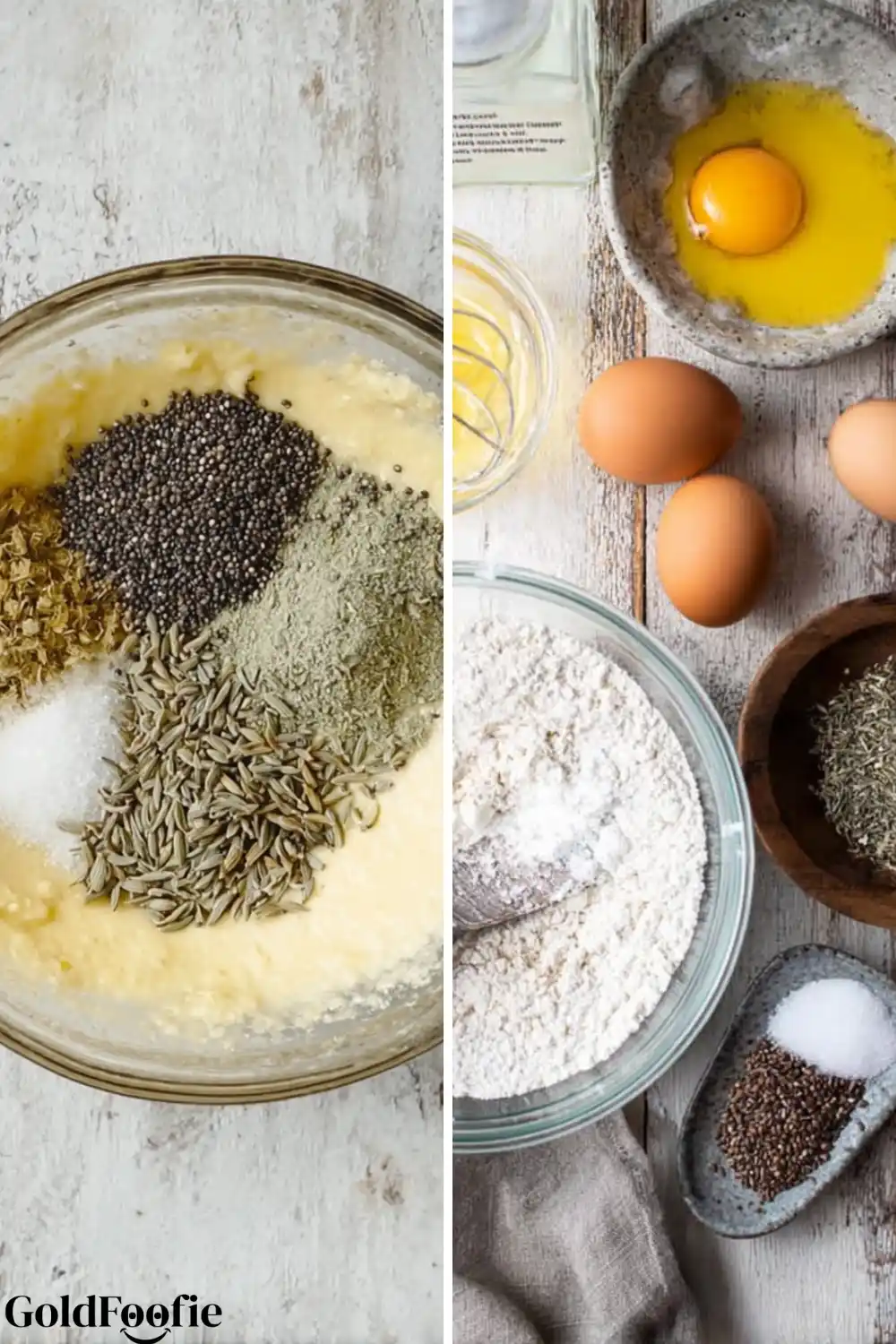
Nutrition Information (per slice)
| Calories | Fat | Protein | Total Carbs | Fiber | Net Carbs | Sugar |
| 107 kcal | 6.3g | 7.6g | 6.3g | 3.9g | 2.4g | 0.3g |
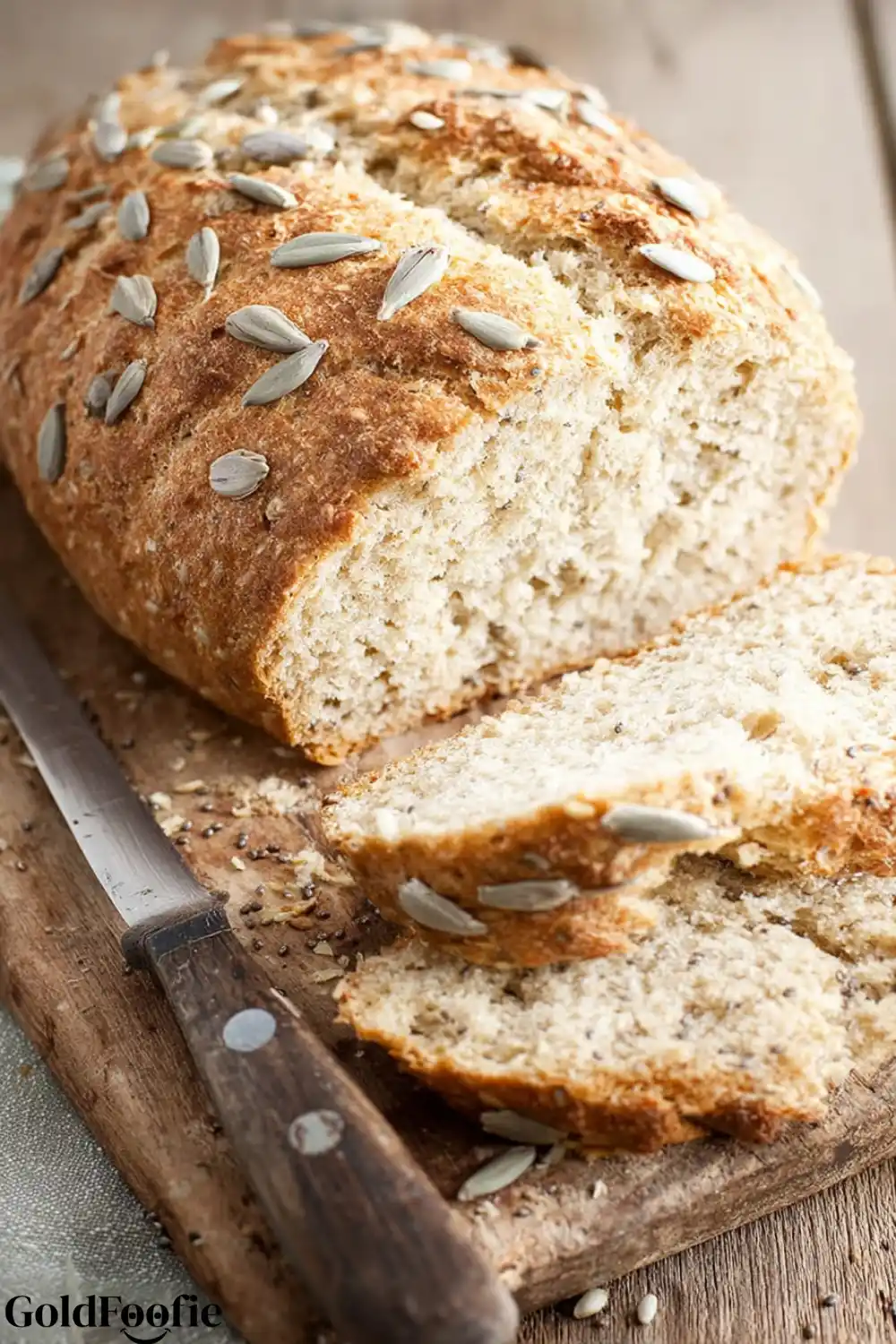
Diabetic-Friendly Low-Carb Bread
Ingredients
Method
- Line a small loaf tin (450ml capacity) with parchment paper to prevent sticking and make cleanup easier.
- In a large mixing bowl, beat the eggs and quark using an electric mixer until the mixture is smooth and slightly fluffy.
- Add almond flour, coconut flour, baking powder, and salt. Mix until well combined with no dry patches.
- Stir in chia seeds and psyllium husks. Add sunflower seeds if using. Mix thoroughly.
- Spoon the dough into the prepared loaf tin, smooth the top, and let it sit for 15 minutes to firm up.
- Preheat your oven to 170°C (340°F).
- Sprinkle sunflower seeds on top if desired. Bake for about 45 minutes. Check with a knife — it should come out clean and the top golden brown.
- Cool the bread in the tin for 10 minutes, then transfer to a rack to cool completely before slicing.
Notes
Nutrition Facts (Per Serving)
Calories: 107 kcal | Total Carbohydrates: 6.3 g | Dietary Fiber: 3.9 g | Net Carbs: 2.4 g | Protein: 7.6 g | Fat: 6.3 g | Sugar: 0.3 gA Dietitian’s View on Bread for Diabetics
To offer professional insight, I spoke with Maria Jensen, a Registered Dietitian who specializes in diabetes care. She shared her thoughts on this recipe and why it supports healthier blood sugar levels.
“The ingredients used here, especially almond flour, chia seeds, and psyllium husk, are all rich in fiber and healthy fats,” says Maria. “They help slow down digestion and prevent rapid blood sugar spikes, which is essential for people with diabetes.”
She also points out that including protein and fat with your carbs makes a big difference. “Pairing a slice of this bread with a boiled egg or a spoon of nut butter adds balance and keeps blood sugar steady longer,” she adds.
Her top tip for diabetic bread lovers? “Portion control and pairing are everything. One to two slices of this kind of bread with a balanced meal is both satisfying and safe.”
This expert approval brings peace of mind and confidence for anyone trying to make smarter food choices.
Essential Tips for Baking and Storing Your Bread
Getting great results from diabetic bread recipes takes a little care and the right techniques. Here are practical tips to make your bread turn out just right and stay fresh longer.
Baking Tips
- Use a kitchen scale instead of measuring cups for better accuracy. Flours can vary a lot in weight and this affects texture.
- If you use yeast in other recipes, always check the water temperature. Lukewarm is best. Hot water can kill the yeast and cold water won’t activate it.
- To test if your bread is fully baked, remove it from the tin and tap the bottom. If it sounds hollow, it’s ready.
Let your bread cool fully before slicing. This sets the crumb and avoids a gummy texture.
Storage Tips
- At room temperature, store your bread in an airtight container for up to two days.
- In the fridge, it will stay fresh for up to five days. Wrap it tightly to prevent drying out.
- For longer storage, slice the loaf and place the slices in a freezer-safe bag. Keep frozen for up to three months. Toast slices straight from the freezer for convenience.
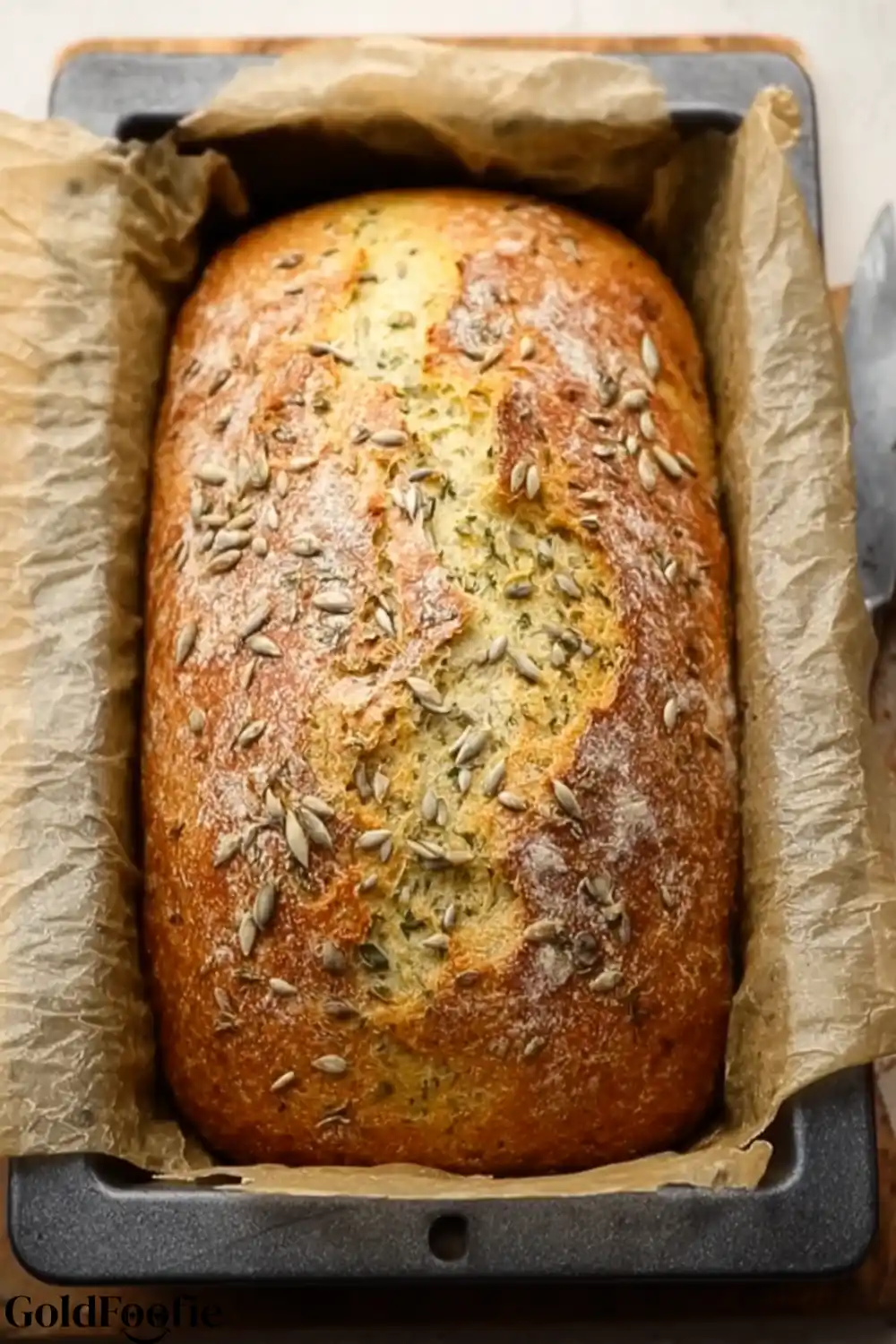
Helpful Notes: Diabetic Bread Recipes
Each slice contains just 2.4 grams of net carbs. Nutrition facts are based on slicing the loaf into 12 even pieces. One slice is perfect for a light snack. Two slices make a filling meal, especially when paired with protein or healthy fats.
Quark is a smooth, tangy cheese commonly used in German cooking. If you cannot find it, plain Greek yoghurt is an excellent substitute.
This recipe uses a small loaf tin measuring 18 by 9 centimeters or 7 by 3.5 inches, with a volume of 450 milliliters. That’s about half the size of a standard bread pan. Smaller loaves work better for low-carb bread because they are denser and more filling than wheat-based bread.
Sunflower seeds give the bread a nice crunch and a mild nutty flavor, but they are optional. You can leave them out or swap them with sesame or pumpkin seeds to match your preference.
Frequently Asked Questions (FAQ)
What is the best type of bread for diabetes?
The best bread for diabetes is low in net carbs and high in fiber. Breads made with almond flour, flaxseed meal, or a blend of low-glycemic ingredients are ideal. These help keep blood sugar stable and provide lasting energy.
Is Dave’s Killer Bread good for diabetics?
Dave’s Killer Bread has more fiber and protein than typical breads, but it still contains a moderate amount of carbs. It may be suitable for some diabetics in small portions, but homemade low-carb breads are usually a better choice for tighter blood sugar control.
Is peanut butter good for diabetics?
Yes, in moderation. Peanut butter contains healthy fats and protein, which can help slow the absorption of carbs. Choose a natural peanut butter without added sugar and pair it with low-carb bread for a smart snack.
Should diabetics eat bananas?
Bananas are high in natural sugars and carbs. They can cause a spike in blood sugar if eaten alone. If you include them in your diet, choose smaller portions and pair them with protein or fat to reduce their impact.
Which nuts should diabetics avoid?
Most nuts are good for diabetics when eaten in small amounts. However, avoid sugar-coated or honey-roasted nuts. Stick to raw or dry-roasted options with no added ingredients.
What is a good night snack for diabetics?
A good evening snack combines a bit of protein and healthy fat with low carbs. Examples include a slice of diabetic bread with almond butter, a boiled egg, or Greek yoghurt with chia seeds. This helps keep blood sugar stable through the night.
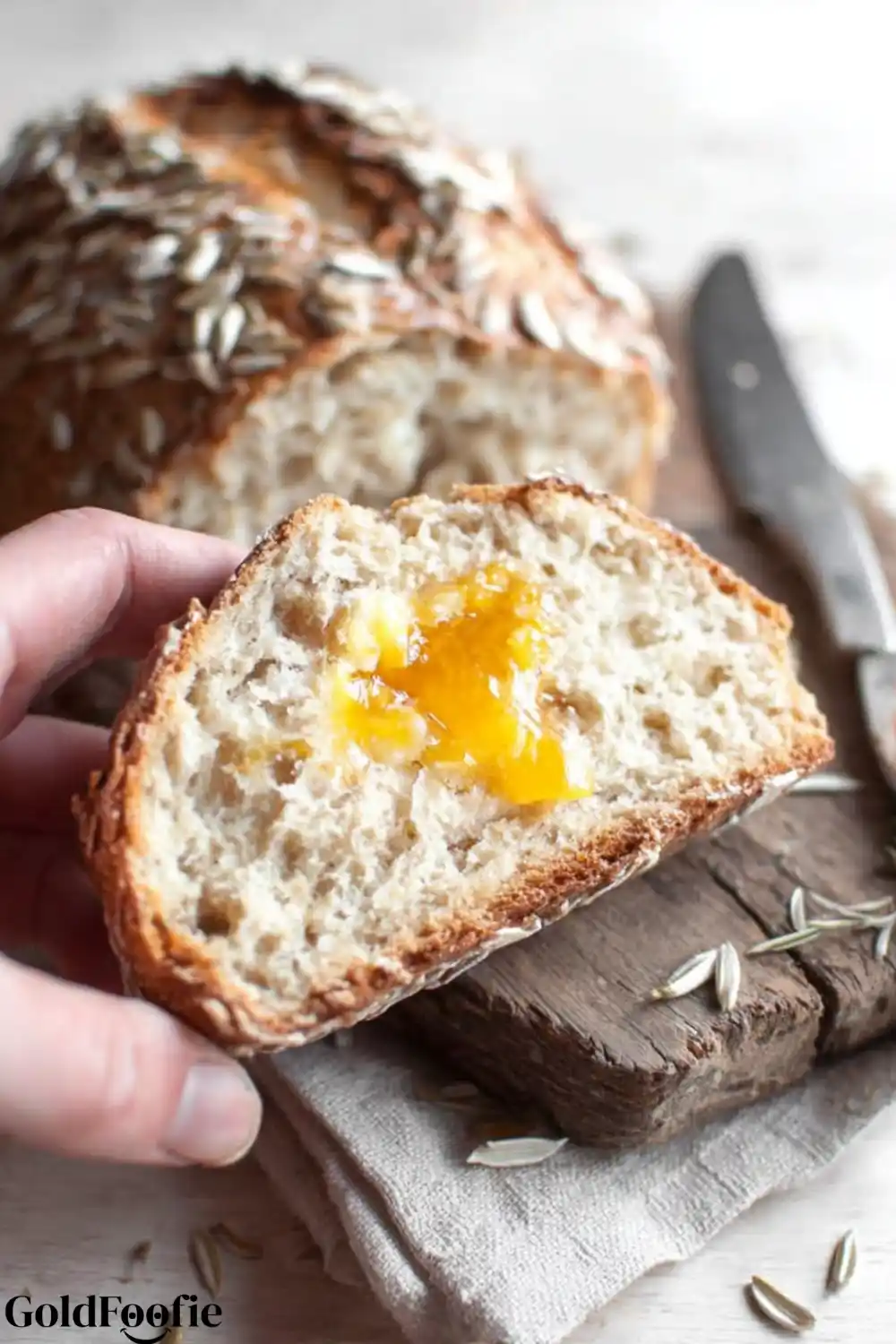
Final Thoughts
Living with diabetes doesn’t mean you have to give up the comfort of bread. With the right ingredients and a little know-how, you can enjoy soft, flavorful, and satisfying slices that support your health goals.
These diabetic bread recipes were created to taste great and help you manage your blood sugar. Each one uses low-carb, high-fiber ingredients that deliver both nutrition and flavor.
I encourage you to try a recipe that fits your lifestyle. Whether you prefer a keto-style loaf or a soft whole wheat slice, there’s an option here for you. Let me know how it turns out. Leave a comment with your experience or any tweaks you made. Your feedback helps others and brings us all closer to better living through smarter food choices.
Diabetes Nutrition Specialist | Healthy Diet Advocate | Founder of GoldFoodie.
My passion for nutrition began with a deeply personal journey supporting my father through his battle with diabetes. Watching his daily struggles made me realize how powerful the right food choices can be in improving quality of life. That experience drove me to dedicate my career to helping others live healthier, more balanced lives.






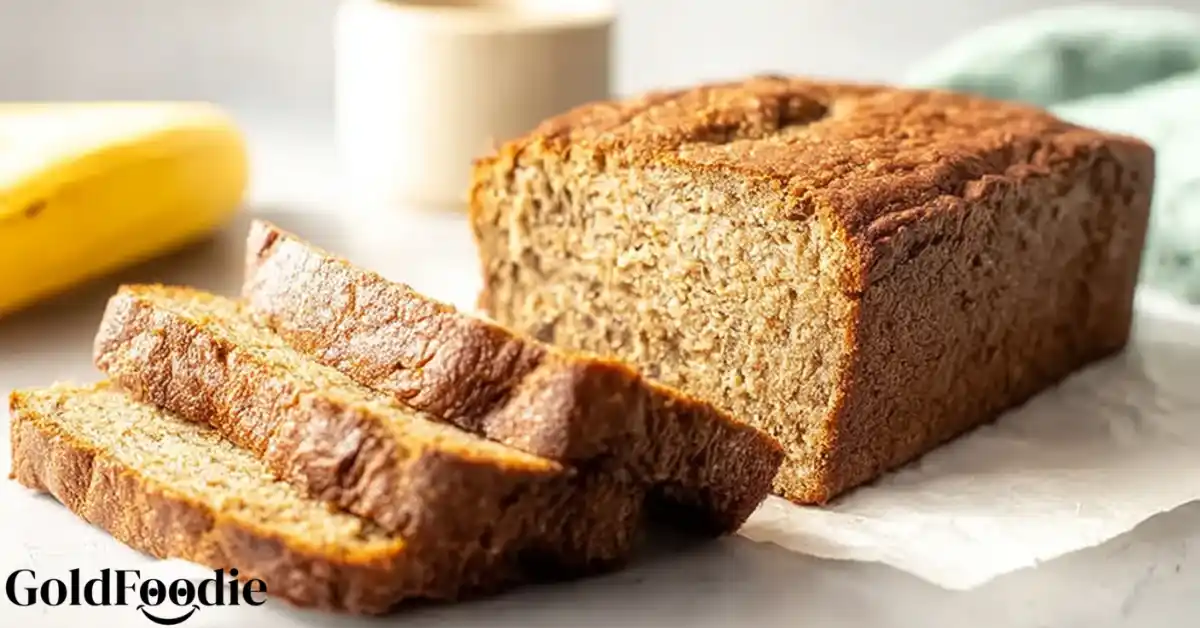
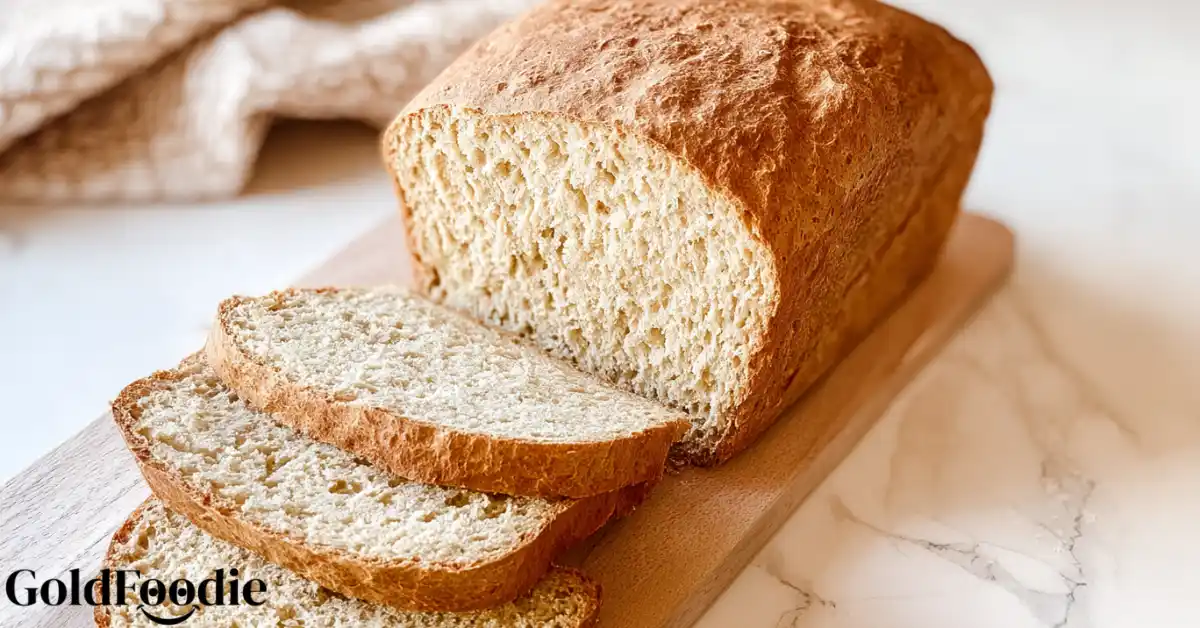
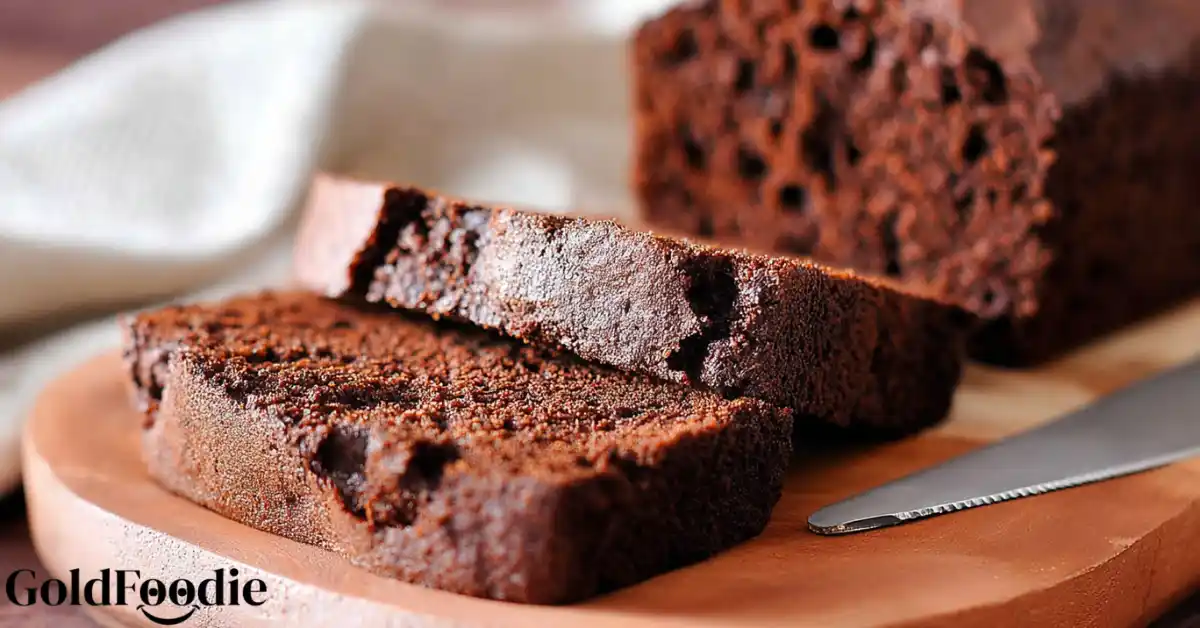
1 thought on “Diabetic Bread Recipes for Stable Blood Sugar”